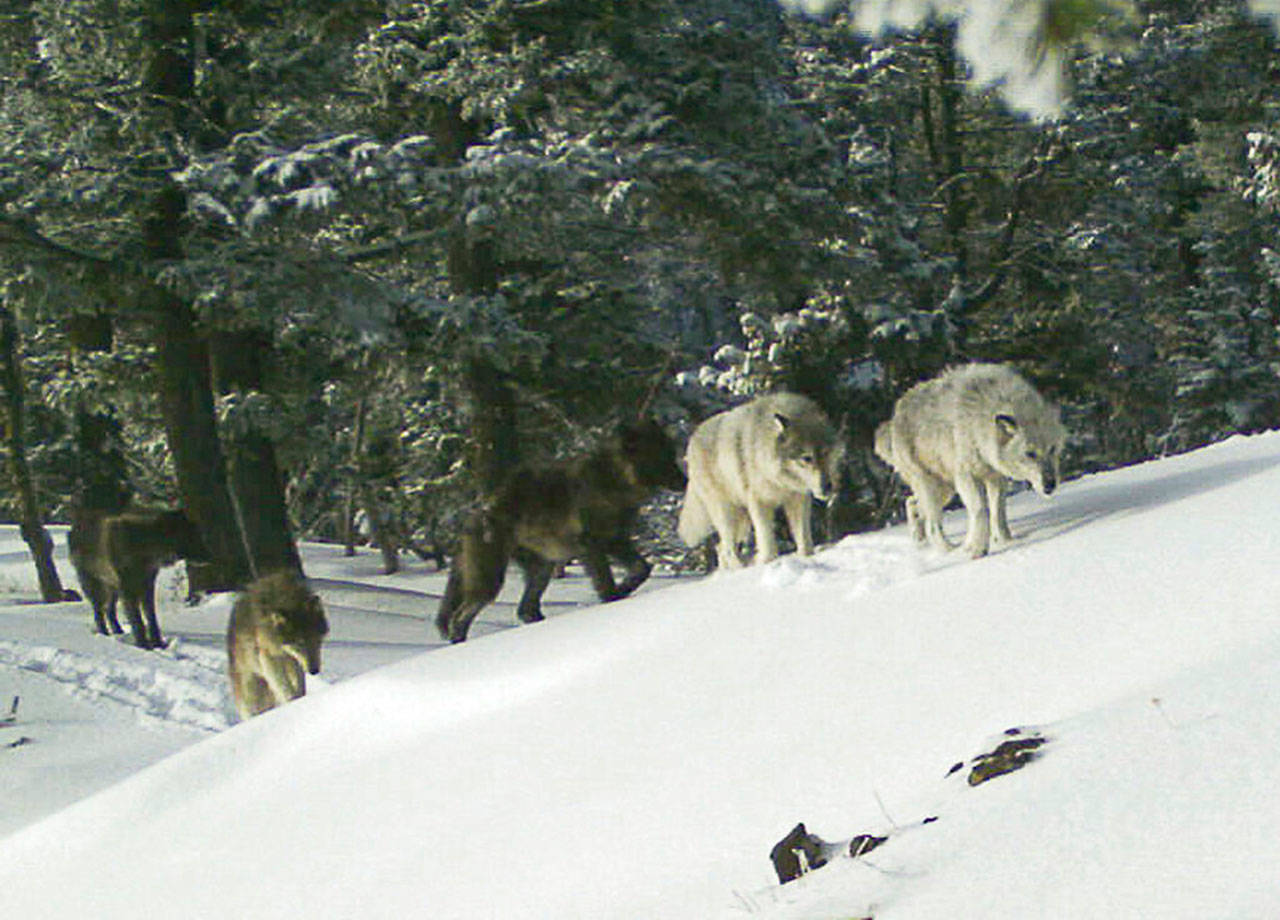By The Herald Editorial Board
This is why we can’t have nice things; like a public process in policymaking that encourages public comment and dialogue and gives full consideration to that participation.
The state Department of Fish and Wildlife announced earlier this week it had canceled a series of public meetings regarding management of the state’s wild gray wolf packs after learning of a number of threats posted on social media, coming from those seeking greater protections for the wolves and those who see them as threat to livestock.
“We got to a point where the department could simply not assure the safety of the public or the staff,” Steve Pozzanghera, eastern region director for Fish and Wildlife, told the Spokesman-Review.
The meetings of the department’s Wolf Advisory Group were intended to gather public comment on a conservation and management plan for when the state’s wolf population has grown to the point where wolves no longer are considered endangered by state or federal agencies. Currently, the state is home to about 126 wolves, with 15 breeding pairs. And the gray wolf population has grown naturally since first returning to the state in 2008. Of the state’s 27 packs, most are found in the state’s northeast and southeast corners, but there are also packs in the counties surrounding and near Snohomish, including Skagit, Chelan, Okanogan and Kittitas.
Tensions between the two packs on either side of the wolf management debate have intensified this summer, following recent predations of cattle by wolves and the wildlife agency’s decision to kill the last members of the Old Profanity pack in the state’s northeast corner and order the lethal removal of a second pack in the same region.
Neither escapes blame here: “Both sides were playing equally poorly,” Pozzanghera said.
In lieu of the public meetings — a staple of state and local government that encourages public engagement and ownership in policy and decisions — the Fish and Wildlife Department will solicit written comments until Nov. 1 and schedule some online open houses.
The FBI is investigating threats made against wildlife agency staff and ranchers, according to the Spokesman-Review report. But the bad actors also include a state lawmaker: state Rep. Matt Shea, R-Spokane Valley, who, while not making the threat himself, participated in an online forum discussion with an associate who suggested obtaining and sending the tail and testicles of a wolf to a conservation supporter. Shea’s participation in the exchange was to suggest it not be discussed in public view.
Other controversial statements and activities by Shea have resulted in the decision by the Democratic-controlled House to investigate the lawmaker as it considers his possible expulsion from the Legislature, as The Herald’s Jerry Cornfield reported earlier this month.
What protections are necessary for or from wolves are not likely to soon rile a crowd in Snohomish County, but the cancellation of the meetings elsewhere in the state offer a reminder of how political passions involved in any issue can get the better of us, with the potential outcome for limiting the opportunity for all voices to be heard as the decisions that concern us are made.
Many of us have attended meetings of city councils, school boards or other local governments, where discussions have devolved to the point of shouting matches, where the passion is visible but the content — the very point meant for officials and community members — is obscured. Violence doesn’t have to be threatened for volume to drown out discourse.
We live in an era of political polarization, something easily evident from the exchange of views found among The Herald’s letters to the editor. The problem, however, isn’t with polarization but with how that split in opinion is expressed. Those letters — signed by the authors who have the courage to stand behind their convictions — are for the most part respectful of others’ rights and offer an example for the tenor of statements we make online and in public.
When officials must take a better-safe-than-sorry approach and cancel public meetings, something has been broken.
Talk to us
> Give us your news tips.
> Send us a letter to the editor.
> More Herald contact information.

























